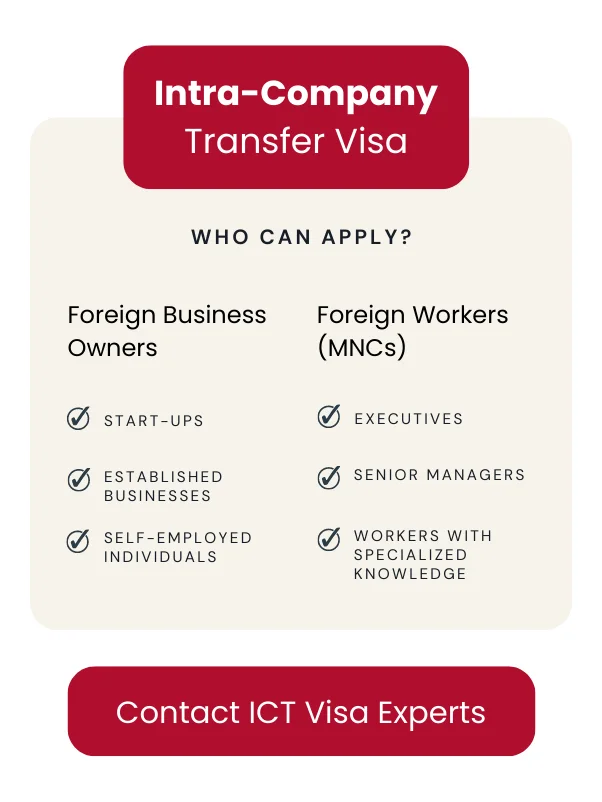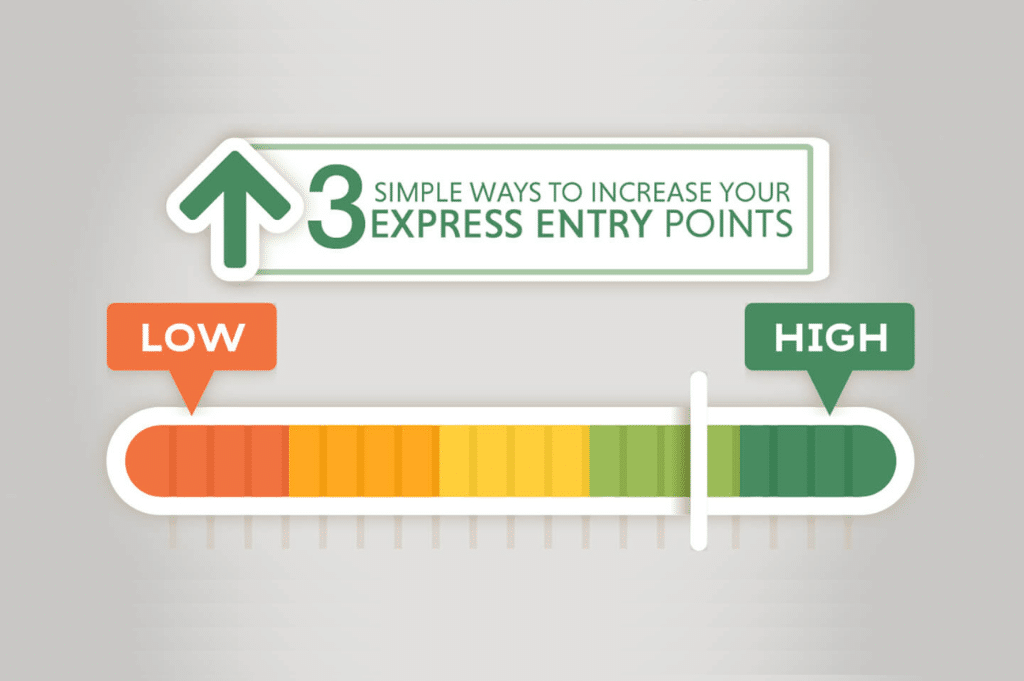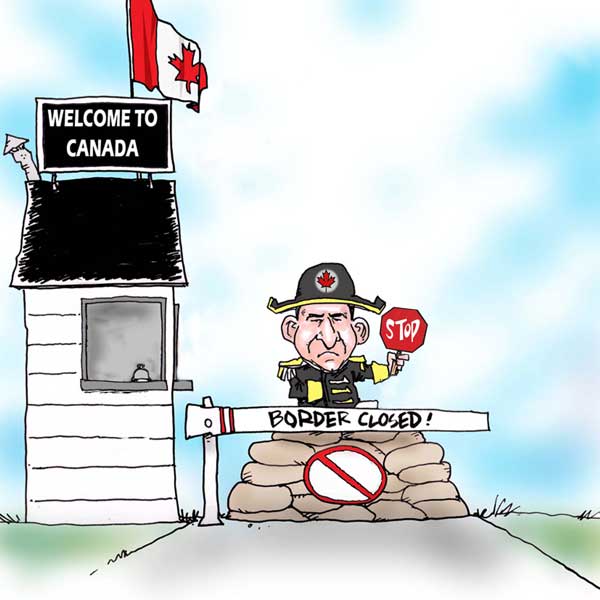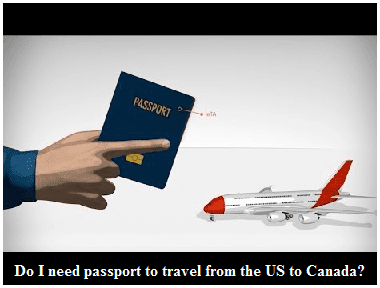Do I need passport to travel from the US to Canada
US citizen travelling to Canada
The winter is here and you and your family living in Washington decide to take a road trip north of the border into Canada to spend some good quality time with your family. While packing your bags you realize that your passport has expired and wondering if you can enter Canada without a passport and whether you can use birth certificate for your minor children to enter Canada.
This only applies if you are citizen of the United States and hold or are eligible to hold an American passport or have a Permanent Resident status in the United States. This does NOT apply if you are a foreign national visiting or temporarily living in the United States.
Identification and Documentation required by United States citizens and permanent residents
If you are a US citizen then you must bring along with you sufficient documents to prove your identity and citizenship. Carrying a passport, birth certificate, or a certificate of citizenship or naturalization, or a certificate of Indian Status with photo would be the best assets to help facilitate a smooth moving process. Persons who are permanent residents must also bring documents to prove their status such a US Green Card.
If you are travelling by air, land, or sea, it is highly recommended to carry a valid passport for all travel abroad, including visits to Canada from the United States even if you are a US citizen. A valid passport might be required by your airline, your departure airport, or your travel agent, as it is the only completely universally accepted identification document.
Furthermore, persons who hold US citizenship or are permanent residents of the United States may present their NEXUS or FAST cards to prove their identity to the Canadian Border Service Agency.
Regardless of what citizenship a person may hold, if they have a criminal offence and conviction filed against them in record, then they must apply for a Temporary Resident Permit. A Temporary Resident Permit is document issued by a Canadian Immigrations officer. A TRP is used for persons who have criminal convictions; it is subject to the approval of an authorised officer. You must apply for a TRP well before-hand you date of intended travel. Be aware that you will have to convince the officer that you will not commit any crimes within Canada, that you are financially capable, and that you will exit Canada when your authorised period of stay is over. The length of you TRP is at the discretion of the immigration officer.
Travelling with Children and Minors to Canada
Border service officers at the Canadian Border are vigilant for lost children; they may ask detailed questions regarding the child, and your relationship to him or her.
If both parents are separated but share custody of their children, they should carry copies of their legal custody documents and court rights that are granted to each. If only one parent is travelling with the minor and both parents are separated than it is highly urged to carry consent letter that will prove to the Canadian Border Service Agency that you have permissions from the parent to take the child out of the current country of residence and cross international borders. The same rule applies if you are travelling with children to whom you are parents or legal guardians of. If a minor is not biologically or adoptively yours, then a consent letter is required to be presented, signed by the parents or the legal guardians. A consent letter must include the full name of the custodial parents or the legal guardians’, the address of residency, and a valid telephone number. You may wish to have the consent letter notarised if you are planning a significant trip and want to avoid delays.
When travelling in groups with more than one vehicle, parents and guardians must arrive at the border with their respective children in the same vehicle as them.
There are other factors that you must also consider when visiting Canada, these include:
- Having all the essential travel documents, such as passports, or in their unavailability, certificate of citizenship, a Permanent Resident Card, and other identification documents
- Be in good health
- Have no criminal convictions and offences filed in your records
- Convince an immigration officer at the border that you will exit the country when you are required to. For US citizen a visa is not required to enter Canada, provided the duration of stay is 180 days or less.
- Have enough money on you so as to support you sufficiently for your stay.
If you are travelling with pets then you must comply with the rules and regulation of the Canadian Food Inspection Agency and also the import requirements for all animals and animal products that enter Canada. If you are considering bringing pets along with you on your trip, then check the Canadian Food Inspection Agency’s website for further details.
Adults and Children who are citizens of the United States travelling by air are required to present either a US passport or a NEXUS card
Adults travelling by land or sea must present one of US passport, NEXUS or FAST card, or an Enhanced Driver’s License.
US citizen adults travelling on a US based cruise must present one document from those listed in the two bullet points above or a United States birth certificate and a government issued photo ID.
Children travelling by land or seas who are United States citizens and are 15 or younger or are between the ages of 16 and 18 and are travelling as part of a supervised youth group may present proof of citizenship without a photo ID. This may include a US birth certificate or a certificate of naturalization.
Person who are foreign nationals of other countries and do not hold dual citizenship of either United States or Canada are required to carry passport with them if they wish to enter Canada or else Foreign Nationals will be denied entry since a passport is the only recognised document of identification by the Canadian government.
Persons who are permanent residents of the United States may present their Green Card in order to enter Canada. They are not required to obtain a visa. However, they must have their Green Card when re-entering the United States.
Bringing a firearm into Canada from US is unadvised for. The person who is bringing the firearm must be at least 18 years of age and must present a valid certificate that the firearm was legally bought to the Canadian Border Service Agency when asked to do so.
Pepper sprays, stun guns, are prohibited weapons and cannot be brought to the Border crossing. These items must be declared or passengers risk a $5000 fine as well as confiscation of the firearms and a letter of abandonment.
Contact Akrami & Associates
If you have travel date in mind and are unsure what documents you can present at the border to have a successful entry then contact us today at 416-477-2545 and will determine how the Canadian Law might affect you.
With Akrami & Associates there is always a way!!
Latest Immigrations News

July 10, 2024
How to get an Intra-Company Transfer Work Permit
How to get an Intra-Company Transfer Work Permit Are you wondering how to get an Intra Company Transfer work permit? The Intra-Company Transfer (ICT) Work Permit offers a streamlined pathway for companies to transfer key personnel to their Canadian branches. This permit allows skilled workers to leverage their [...]

July 5, 2024
How to improve your CRS score for Express Entry
How to improve your CRS score for Express Entry Do you want to know how to improve your CRS score for Express Entry? Enhancing your CRS score involves a strategic approach, combining several factors to maximize your potential. Start by focusing on your educational credentials, ensuring all your [...]

July 4, 2024
Denied Entry to Canada for a DUI
Denied Entry to Canada for a DUI? Canada has strict immigration and border security policies, which include rigorous checks on individuals with criminal records. One common reason for being denied entry into Canada is a past conviction for driving under the influence (DUI). Have you been denied entry [...]

Book a Conslutation
One of our Representatives will
assist you with your matter. Book Now!
Click here

Call us for
more Information
+1-416-477-2545
Toll Free: 1-877-820-7121
Click here

Write Us (Online Form)
Complete our form and one of our
Representatives will contact you.
Click here
Subscribe To Our Newsletter


